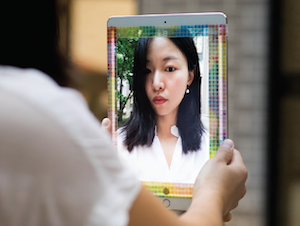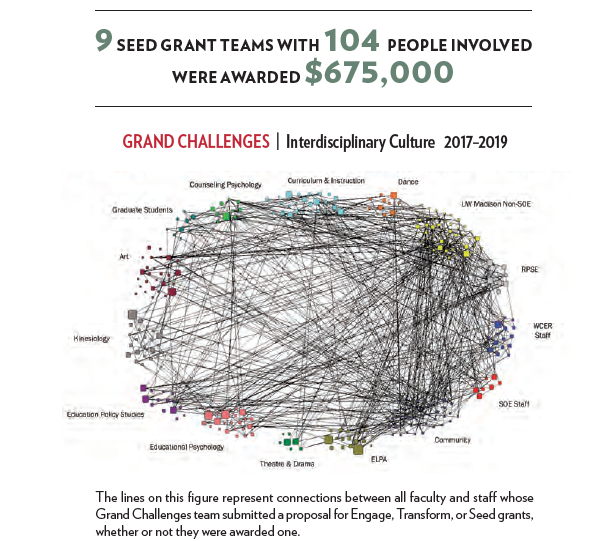Niu analyzing how selfie filters affect self-image
 While observing heavy use of selfie apps such as Snapchat, UW–Madison Ph.D. student Yanzhuo (Amy) Niu found herself wondering about the effects that virtual makeovers have on college-age females.
While observing heavy use of selfie apps such as Snapchat, UW–Madison Ph.D. student Yanzhuo (Amy) Niu found herself wondering about the effects that virtual makeovers have on college-age females.
The apps offer users photographic filters that change their look. In China, where Niu is originally from, apps similar to this are used even more heavily than they are in the United States.
Popular apps among Chinese college- age females apply the filter as soon as the user opens the app, while popular American apps require the user to select a filter before it is applied. In addition, many Chinese students have phones that apply the filter directly through the phone’s camera — so they are seeing their enhanced self every time they take a selfie. In other words, they are seeing themselves with the filter more often than their unedited face.
“I started to wonder how looking at a different self will change how people will view themselves,” said Niu, who is studying with the School of Education’s highly regarded Department of Educational Psychology.
From this, her research was born.
Backed by a 2019 Graduate Student Research Award, Niu’s dissertation work is examining whether selfie-editing filters negatively or positively impact one’s evaluation of self. Niu has also conducted other projects focusing on how social media and new technology transform emerging adults’ social-emotional development.
— By Molly Miller, University Communications
New master’s program in design and innovation engages five disciplines
The new UW–Madison accelerated master of science in design and innovation gives new meaning to collaboration. Combining expertise from five schools and colleges with team-based interaction, the program promises to offer students a breadth of highly desired skills.
“The interdisciplinary nature of the program promotes creative thinking and an ability to solve complex problems,” says UW–Madison Chancellor Rebecca Blank. “The program will draw upon top- notch faculty from five disciplines and use our state-of-the-art facilities.”
With applications now open, the MS in design and innovation is a 12-month, face-to-face program resulting from a partnership between the School of Education’s Art Department, the College of Engineering, the Wisconsin School of Business, the School of Human Ecology, and the Information School in the College of Letters and Science.
Students will experience a dynamic course of study, which will include time in the UW Makerspace. A hub for inventing and designing new products, this space offers an expansive library of technology and equipment. Students will also have access to other vibrant labs, studios, and entrepreneurial resources across campus.
“Students can come in and dabble in all five areas of study — engineering, business, design, data, and art — but they can also dig deeper in any one of these areas to complement experience they already have,” says Michelle Kwasny, academic director of the new program.
Kwasny says she expects a variety of students to be interested in this new master’s program — from software developers and mechanical engineers to artists and musicians, adding, “It’s for people interested in solving complex challenges in a creative way.”
— By Lisa Bauer, Continuing Studies
Grand idea for breaking out of silos
The School of Education’s Grand Challenges initiative is wrapping up its third year of igniting cross-disciplinary innovation.
Run through the Wisconsin Collaborative Education Research Network (the Network), Grand Challenges was launched to change the culture of the School from successful and siloed, to highly successful and interdisciplinary.
Since its inception in February 2017, half of the faculty members within the School — which is home to a diverse set of 10 departments spanning the arts, health, and education — have submitted Grand Challenges grant proposals.
Grand Challenges incorporates several strategies to increase opportunities for interdisciplinary collaboration, including: consultation with the Network staff to support and grow faculty ideas and teams; meetings to connect faculty and community members around a theme; and writing and editorial support to ensure quality proposals.
To date, Grand Challenges has held three different competitions: eight Engage grants, worth up to $25,000 each, were awarded in September 2017; four Transform grants of up to $250,000 each were awarded in May 2018; and most recently, nine Seed grants worth $75,000 each were awarded in May 2019.
